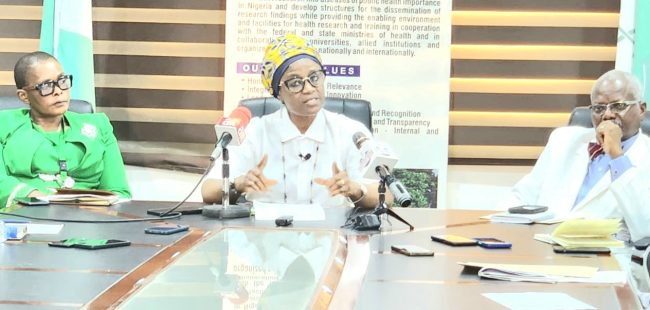The Nigerian Institute of Medical Research (NIMR), Yaba, Lagos, has again expressed worry over the high electricity bills being charged by the Eko Electricity Distribution Company (EKDC).
The Director-General of the institute and professor of forensic pathology, John Obafunwa, raised the concern on Tuesday at the institute’s monthly media briefing in Lagos, lamenting that the huge electricity bills are suffocating the institute.
According to him, “Our monthly bill from EKDC is too high and we cannot cope with it as an institute.”
Making reference to some recent past electricity bills, Obafunwa said, “We paid EKDC about N49 million in August last year, N48 million in September, N44 million in October, N34 million in November, and N43 million in December.”
He emphasised that the institute could not sustain such huge bills, which are under the newly introduced “Band A” tariff circle, calling on EKDC and the government to address the concern in the interest of over 200 million Nigerians who benefit from the services of the institute.
According to Obafunwa, NIMR is a federal government-owned medical research institute whose activities have direct or indirect impacts on all Nigerians as it deals with health and medical issues of public concern.
“And so, we need a constant supply of electricity because most of our activities in the laboratories are temperature-sensitive,” he noted, adding that “to shut down power supply to laboratories due to the inability of NIMR to pay will not only amount to wastage of efforts but will also cost us more as a country.”
While urging EKDC to install pre-paid meters as the first mechanism to address the issue, Obafunwa explained that the installation of pre-paid meters would not only help the institute to accurately estimate its consumption of the commodity but also regulate the usage across departments and staff quarters.
He, however, called on the government, corporate bodies, and individuals to come to the aid of the institute not only in the area of electricity supply but also in infrastructure, research work, and capacity-building development that can enhance its mandate delivery.
Speaking earlier, the director of research and professor of Virology, Rose Audu, shared insights on NIMR’s impacts on the health and medical concerns of Nigerians.
Audu leads a team of researchers in the institute that focuses on emerging and re-emerging viral diseases, and now on Viral Hemorrhagic Fevers (VHFs) including Lassa Fever, Dengue Fever, Yellow Fever, Zika virus, and Chikungunya, which was the basis for the media briefing.
According to her, there are many infectious diseases that are re-emerging in the country and globally by extension, and there is a need to understand how they emerge and re-emerge, spread, change, and affect human health so as to help guide public health decisions and also develop better tools for their diagnosis, vaccines, treatment, and prevention.
She noted that since the world is a global village where people move almost freely from one place to another, effective surveillance is required to prevent the spread of VHFs, which her team found to be prevalent in the country.
VHFs are a group of illnesses caused by viruses that damage the blood vessels and can cause not only severe bleeding and other complications but also death.
Audu, while highlighting some of her team’s other activities, including research on Mpox, kit and capacity development, re-emphasised the need for Nigeria to improve surveillance on travellers, especially at borders, and also improve on diagnostics, vaccines, and treatment as well as capacity building, funding, and the development of in-house serology kits.
She observed that this would be the best way to enhance NIMR’s service delivery and also address health and medical concerns of Nigerians and boost the country’s economic productivity.
ALSO READ FROM NIGERIAN TRIBUNE
WATCH TOP VIDEOS FROM NIGERIAN TRIBUNE TV
- Let’s Talk About SELF-AWARENESS
- Is Your Confidence Mistaken for Pride? Let’s talk about it
- Is Etiquette About Perfection…Or Just Not Being Rude?
- Top Psychologist Reveal 3 Signs You’re Struggling With Imposter Syndrome
- Do You Pick Up Work-Related Calls at Midnight or Never? Let’s Talk About Boundaries







